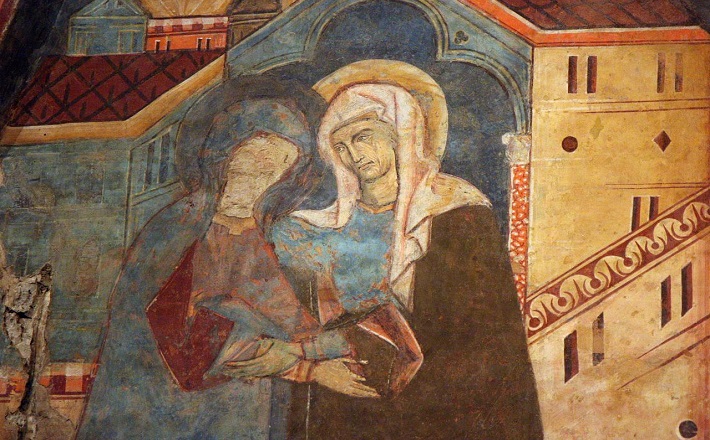Commentary on Micah 5:2-5a
The prophet Micah was active during a tumultuous period in Israel’s history.
According to the book, Micah prophesied during the reigns of the kings Jotham, Ahaz, and Hezekiah, who ruled during the late eighth and early seventh centuries (759–687 BCE). At this time, Israel and Judah experienced great turmoil as the Assyrians invaded the region.
The Assyrians captured Samaria, the capital of the northern kingdom, in 722 BCE. The southern kingdom of Judah also witnessed military threat. During Hezekiah’s reign, the Assyrian king Sennacherib carried out a military campaign (701 BCE), attacking several towns in Judah (see 2 Kings 18–19; Micah 1:10–16) before retreating from Jerusalem.
As there were threats on the international stage, there were also great changes in the culture. During this era, Judah’s economy expanded and shifted from a barter society to a mercantile society, in which money was traded for goods. According to the prophet, corruption and hypocrisy were rampant. Jerusalem’s “rulers give judgment for a bribe, its priests teach for a price, its prophets give oracles for money; yet they lean upon the LORD and say, ‘Surely the LORD is with us! No harm shall come upon us’” (Micah 3:11).
God’s promise enters this perilous and pernicious world in a surprising way. The oracle in Micah 5 vows that God’s ancient covenant with Israel is secure and reliable, even as it may come about in an unexpected manner. The oracle provides assurance that God’s covenant with David—the one “from of old, from ancient days”—is eternal and is still operative, even as Judah is under threat. The covenant will be fulfilled with a new leader in the line of David.
Yet this new ruler will arise not from Jerusalem, the royal city, but from Bethlehem, a small village. He will not exercise military might like the Assyrians, but will be one of peace who provides for his people like a shepherd. There are several allusions to David in the image of this ruler, including the new ruler’s birthplace in Bethlehem, which was also the birthplace of David, and his pastoral image as shepherd, David’s occupation.
It is a consistent theme through the Bible that God delights in upsetting human expectations. Abraham and Sarah did not expect to bear a child in old age, and yet Isaac, whose name means “he laughs,” was such a preposterous surprise that it prompted Sarah’s laughter (Genesis 20:1–7). David, who was the smallest of his brothers, was anointed as the king (1 Samuel 16). Likewise, the ruler promised in Micah’s oracle will come from an unexpected place, in an unexpected way.
This divine habit of eschewing expectations also echoes in the New Testament, as Mary receives a surprise announcement that she will bear a child (Luke 1), and as Jesus enters the world not as a triumphant ruler but as a vulnerable infant.
Micah 5 is one of the texts that the gospels reference to interpret who Jesus is. In the Gospel of Matthew, the wise men cite Micah’s oracle to inform King Herod that the Messiah will be born in Bethlehem (Matthew 2:6), and the Gospel of John refers to a group of people who refer to this text in understanding Jesus’ identity (John 7:40–43). In its eighth-century context, Micah’s oracle offers a particular word to a specific community. Yet it takes on new life in God’s ongoing activity of remaining faithful to covenant promises by subverting expectations.
The irony of Advent is that this season of preparation anticipates a hopeful expectation of that which is unexpected. Those who have heard these Scriptures so many times, year after year of Advent celebration, may have trouble fully appreciating their startling logic. Yet perhaps we need look no further than our own lives. Micah calls us to see God’s faithfulness in surprising ways, to look where we might not expect. Micah’s oracle serves as a reminder that the promise of God’s covenant is certain, yet the expression of its fulfillment is not always predictable.
Micah’s oracle speaks to a world that is caught in the bewilderment of violence, uncertainty, and economic disruption. While there is much that separates us from eighth-century Judah, these dynamics are not unlike the world in which we live. We, too, know terror and fragility on national, international, and personal planes. We, too, seek hope that the world will be different. We, too, yearn for security and peace.
The promise of Micah is that God will be faithful and will appear in surprising ways. As Advent draws to a close, Micah invites us to look for God’s presence where we least expect it, and to be attuned to the voices of the small, the powerless, and the vulnerable. Are we prepared to be surprised? Are we prepared to welcome the Holy One into our midst?


December 20, 2015